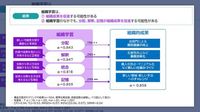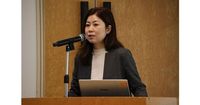On March 25, 2025, Benesse Corporation held a press briefing to unveil the results of a joint survey conducted with Murata Manufacturing focusing on the intersection of employee learning and organizational performance. This initiative aimed to explore the importance of fostering a learning environment within companies to enhance productivity and overall success at a time when the labor market is shrinking and worker skills are becoming rapidly outdated.
During the briefing, key representatives from Benesse, including Eri Uchimaki, Head of the Learning Design Department within their Udemy Business Division, Takeshi Obuka, Head of Marketing Integration, and Morinori Sato from Benesse Educational Research Institute, presented critical findings from their collaborative efforts. The survey, which explored the cost-effectiveness of learning, came at a pivotal moment when businesses are navigating the evolving landscape caused by both technological advancements and the pressure to reskill employees.
Many Japanese companies find themselves in a challenging position; as the workforce diminishes, enhancing the individual productivity of employees has emerged as a crucial priority. The recent surge in developments surrounding generative AI has also added complexity to the workplace environment, making it increasingly evident that traditional skills may soon become insufficient.
The survey sought to understand the relationship between personal growth through learning and its impact on organizational results. As stated in their findings, "Organizational learning has the potential to promote organizational performance," demonstrating that a concerted focus on learning could ultimately drive corporate success.
To assess these relationships, Benesse and Murata Manufacturing designed and conducted the survey targeting 2,089 users of the Udemy Business platform at Murata. Conducted from November 11 to November 22 of 2024, the survey's results underscored the vital role of knowledge sharing within organizations. Specifically, it highlighted that knowledge acquisition behaviors—such as information distribution, interpretation, and retention—were directly correlated with improved organizational outcomes.
One striking conclusion from the research was the significance of "psychological safety" within the workplace. The findings indicated that when employees feel safe to experiment, make mistakes, and contribute collaboratively, their capacity for learning and subsequent growth increases dramatically. The report highlighted that "psychological safety is crucial for promoting organizational learning," suggesting that organizations seeking to bolster performance should prioritize creating an environment where staff feel comfortable expressing their ideas and concerns.
Furthermore, the study identified three indispensable components that support employees in linking their learning to organizational success. These elements included: 1) learning expectations from management or peers regarding skill enhancement; 2) organizational support that creates an environment conducive to learning; and 3) personal motivation to continue pursuing skill acquisition.
Observations made during the survey also revealed a paradoxical situation where initiatives designed to facilitate learning do not always lead to the desired organizational change. For companies to effectively translate individual learning into broader organizational benefits, it is essential to establish a learning culture that emphasizes the sharing and utilization of knowledge throughout the company.
In light of these insights, Benesse Corporation and Murata Manufacturing presented actionable strategies for companies to support both individual learning and organizational development. Suggestions included facilitating skill assessments and providing opportunities for personal development through training and workshops. It was also imperative for organizations to implement frameworks that allow employees to share newly acquired skills and knowledge and engage in community discussions, as this is essential for nurturing a cohesive learning culture.
As work environments continue to evolve and the demand for adaptable skillsets increases, the focus on employee learning as a key driver of organizational success will only grow. Initiatives such as these highlight the importance of investing in human capital and fostering a culture of continuous learning within organizations. By prioritizing educational opportunities and psychological safety, companies stand to gain not just improved outcomes, but also a more engaged and capable workforce prepared for the challenges ahead.
As corporate leaders reflect on these findings, they may consider that the pathway to a thriving organizational culture lies in both the investment in individual talents and the establishment of an environment that prioritizes learning, innovation, and shared success.




